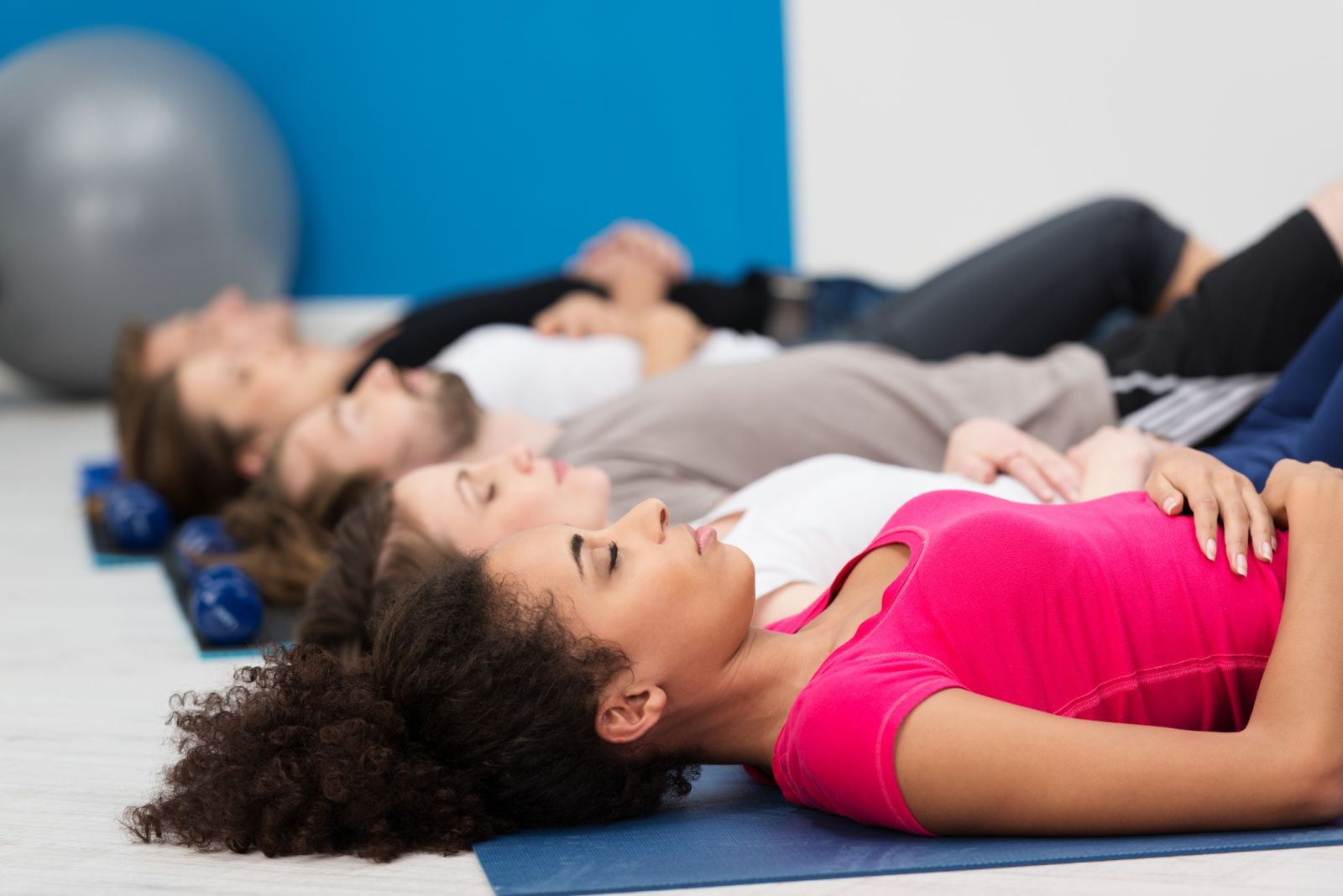Choosing the ideal time to work out can significantly influence your fitness journey, impacting everything from energy levels to overall performance. This article explores the benefits of morning and evening workouts, providing insights on how to select the best time for your routine based on personal preferences, daily schedules, and fitness goals.
In addition, we offer practical tips for maximizing workout effectiveness, regardless of when you choose to exercise. By understanding your body’s natural rhythms and implementing strategic practices, you can enhance your workouts and achieve better results. Whether you’re aiming to boost energy, build strength, or improve recovery, this guide will help you make informed decisions about your fitness regimen.
In this article you will find:
Benefits of Morning Workouts for Energy and Focus
Starting your day with a workout can be a transformative habit that enhances both energy levels and mental clarity. Morning workouts not only kickstart your metabolism but also set a positive tone for the rest of the day. Here, we delve into the various benefits of exercising in the morning, supported by science and expert insights.
Boosts Energy Levels
Engaging in physical activity early in the morning releases endorphins, which are known as the body’s natural mood lifters. This can lead to a significant increase in your overall energy levels throughout the day. A study published in the Journal of Clinical Psychiatry found that regular morning exercise can improve feelings of energy and reduce fatigue, making it easier to tackle daily tasks.
Enhances Focus and Productivity
Morning workouts can sharpen your focus and increase productivity. Exercising stimulates the brain, enhancing cognitive function and improving memory retention. This is particularly beneficial for those who have demanding jobs or academic responsibilities. Research shows that individuals who exercise in the morning report higher levels of concentration and are more effective in their tasks. The American Journal of Lifestyle Medicine highlights that morning exercise can lead to improved decision-making and problem-solving skills.
Establishes a Consistent Routine
One of the keys to maintaining a successful fitness regimen is consistency. Working out in the morning helps in establishing a routine that is less likely to be disrupted by unexpected events later in the day. When you prioritize your workout first thing in the morning, it becomes a non-negotiable part of your schedule. This discipline can spill over into other areas of your life, enhancing overall time management and productivity.
Improves Mood and Reduces Stress
Exercising in the morning has been linked to improved mood and lower stress levels. Morning workouts help in reducing levels of the stress hormone cortisol while promoting the release of serotonin, which can lead to feelings of happiness and well-being. Starting your day with physical activity allows you to tackle stressors with a more positive outlook, ultimately enhancing your emotional resilience throughout the day.
Maximizes Fat Burning
Morning workouts can also be effective for fat burning, particularly if done before breakfast. Exercising on an empty stomach may encourage your body to utilize fat as its primary source of energy. This can be particularly beneficial for those looking to lose weight or improve body composition. However, it’s essential to listen to your body and ensure that you are adequately fueled for more intense workouts.
In conclusion, incorporating morning workouts into your daily routine can yield substantial benefits, from enhanced energy levels to improved focus and productivity. The key to maximizing these advantages is consistency and finding a workout that you enjoy, ensuring that you look forward to starting your day on the right foot.
Advantages of Evening Workouts for Strength and Recovery
Evening workouts can offer unique benefits that enhance both strength and recovery. As your body warms up throughout the day, you may find that your performance peaks in the evening. This section explores how exercising later in the day can be advantageous for building strength, aiding recovery, and improving overall workout effectiveness.
Optimal Strength Performance
Research suggests that strength levels are often higher in the evening due to natural fluctuations in body temperature and hormone levels. As your body temperature rises throughout the day, it enhances muscle flexibility and function, leading to improved performance. According to a study published in the European Journal of Applied Physiology, strength and power output can be significantly better in the late afternoon and evening compared to morning workouts.
Enhanced Recovery Processes
Evening workouts can also play a vital role in recovery. Engaging in physical activity later in the day allows for better blood circulation, which can help flush out metabolic waste products from your muscles. This is crucial for recovery, as it promotes muscle repair and reduces soreness. Additionally, exercising in the evening can align well with your body’s natural recovery rhythms, allowing you to capitalize on the restorative processes that occur during sleep.
Stress Relief and Mental Clarity
Evening workouts serve as an excellent way to unwind after a busy day. Physical activity has been shown to reduce stress levels and improve mood. Engaging in exercise after work can help release pent-up tension and provide a mental reset. The American Psychological Association notes that regular physical activity can enhance emotional well-being, making evening workouts a powerful tool for mental clarity and relaxation.
Social Interaction and Motivation
Evening workouts often provide opportunities for social interaction, whether through group classes, team sports, or workout partners. Exercising with others can enhance motivation and accountability, making it easier to stick to your fitness routine. The camaraderie found in evening fitness settings can foster a sense of community, which can be particularly beneficial for those who thrive on social engagement.
Flexibility and Variety in Workouts
Evenings often allow for longer workout sessions, enabling you to incorporate a wider variety of exercises, from strength training to yoga or high-intensity interval training (HIIT). This flexibility can help prevent workout monotony and keep you engaged in your fitness journey. Moreover, as the day winds down, you might find it easier to focus on your workout without the distractions that can occur earlier in the day.
In summary, evening workouts can provide substantial benefits, particularly for enhancing strength, promoting recovery, and improving mental well-being. By aligning your fitness routine with your body’s natural rhythms, you can make the most of your evening exercise sessions, setting the stage for a healthier, more balanced lifestyle.
How to Choose Your Ideal Workout Time
Choosing the right time to work out is a personal decision that can significantly impact your fitness journey. It involves considering various factors such as your daily schedule, personal preferences, and physiological responses. This section will guide you through the essential considerations to help you determine your ideal workout time, ensuring that you maximize your results and stay motivated.
Assess Your Daily Schedule
The first step in choosing your ideal workout time is to assess your daily schedule. Identify the times when you are most free and least likely to be interrupted. Consider your work commitments, family obligations, and social activities. By pinpointing your available time slots, you can create a consistent workout schedule that fits seamlessly into your life.
Understand Your Body’s Natural Rhythms
Your body’s circadian rhythms play a crucial role in determining your energy levels throughout the day. Some people naturally feel more energetic in the morning, while others peak in the afternoon or evening. To identify your optimal workout time, pay attention to when you feel most alert and physically capable. Keeping a diary for a week to log your energy levels at different times can provide valuable insights.
Consider Your Fitness Goals
Your fitness goals can also influence the best time to work out. For instance:
- Weight Loss: If weight loss is your primary objective, morning workouts may be beneficial, as they can help boost metabolism for the rest of the day.
- Muscle Building: If your focus is on building strength, evening workouts might be advantageous, as your body is typically warmer, allowing for enhanced performance and muscle function.
- Improving Endurance: If your goal is to improve endurance, consider when you have more time to engage in longer sessions, which may be more feasible in the evening.
Evaluate Your Mood and Motivation
Your mood and motivation levels can significantly impact your workout quality. If you find it challenging to get up early or feel rushed in the morning, an evening workout might be more enjoyable. On the other hand, if you thrive on starting your day with an energizing routine, mornings may be ideal. Listen to your body and choose a time that enhances your motivation to exercise consistently.
Experiment with Different Times
Sometimes, the best way to find your ideal workout time is through experimentation. Try working out at different times throughout the week and assess how you feel during and after each session. Pay attention to your energy levels, performance, and overall satisfaction with the workout. This trial-and-error approach can help you discover when you feel your best and perform at your peak.
Incorporate Flexibility in Your Routine
Life can be unpredictable, and flexibility in your workout routine is crucial. If you find that your ideal workout time occasionally conflicts with other commitments, be open to adjusting your schedule. The key is to maintain consistency while allowing for adaptability. Consider having a backup workout time or alternative routines that you can perform when needed.
To further enhance your understanding of optimal workout timing, check out resources like Hideout Fitness, which provides insights into how to align your workouts with your lifestyle and goals.
Tips for Maximizing Workout Effectiveness Regardless of Time
Regardless of whether you choose to work out in the morning or evening, maximizing the effectiveness of your workouts is essential for achieving your fitness goals. Here are some actionable tips to ensure that every session counts, helping you to get the most out of your time and effort.
Prioritize Warm-Up and Cool-Down
Warming up before your workout is crucial for preparing your body for exercise. A proper warm-up increases blood flow to your muscles, enhancing performance and reducing the risk of injury. Incorporate dynamic stretches and light aerobic activities to gradually elevate your heart rate. Similarly, cooling down after your workout is essential for recovery, helping to lower your heart rate and improve flexibility. This practice can prevent stiffness and soreness post-exercise.
Stay Hydrated
Hydration plays a pivotal role in workout effectiveness. Ensure that you are well-hydrated before, during, and after your workout. Dehydration can impair your performance and recovery, leading to fatigue and decreased strength. Aim to drink water throughout the day, and consider electrolyte-rich beverages if you’re engaging in high-intensity workouts or exercising for prolonged periods.
Focus on Nutrition
Your diet significantly impacts your workout performance. Fuel your body with a balanced diet rich in carbohydrates, proteins, and healthy fats. Here are some nutrition tips:
- Pre-Workout Meals: Consume a meal rich in carbohydrates and moderate in protein 1-2 hours before your workout to provide sustained energy.
- Post-Workout Recovery: After exercising, prioritize protein intake to aid muscle recovery. Foods like lean meats, legumes, and protein shakes can help replenish your body.
- Listen to Your Body: Adjust your nutrition based on your workout intensity and duration. If you are training harder, increase your caloric intake accordingly.
Incorporate Variety in Your Routine
To avoid plateaus and maintain motivation, incorporate a variety of exercises into your routine. Mixing up your workouts can prevent boredom and enhance overall fitness. Consider alternating between strength training, cardio, flexibility exercises, and recreational activities. This not only keeps things interesting but also challenges different muscle groups, leading to balanced development.
Set Clear Goals
Establishing clear, achievable goals is crucial for staying motivated and tracking progress. Whether your aim is to build strength, improve endurance, or lose weight, setting specific and measurable objectives can help you maintain focus. Regularly assess your progress and adjust your workout plan accordingly to ensure continued improvement.
Utilize Technology
Leverage technology to enhance your workouts. Fitness trackers and apps can help you monitor your performance, track your progress, and stay accountable. Devices like WHOOP offer insights into your sleep patterns, recovery, and overall health, enabling you to optimize your training based on your physiological data.
Listen to Your Body
Paying attention to how your body feels during workouts is essential. If you’re feeling fatigued or unwell, consider modifying your workout or taking a rest day. Overtraining can lead to injuries and burnout, so prioritize recovery and self-care as part of your fitness regimen.
By implementing these strategies, you can maximize the effectiveness of your workouts, regardless of the time you choose to exercise. These tips will not only enhance your performance but also help you maintain a sustainable fitness lifestyle. Starting your day with morning workouts can significantly boost energy levels, enhance focus, and establish a consistent routine, leading to improved mood and fat burning. Conversely, evening workouts capitalize on higher strength performance due to increased body temperature and hormone levels, aid recovery through better circulation, and provide opportunities for social engagement, making them effective for stress relief and motivation.
To maximize workout effectiveness regardless of the time, prioritize warming up and cooling down, stay hydrated, and focus on balanced nutrition. Incorporate variety in your routine to prevent boredom, set clear goals to maintain motivation, and utilize technology to track your progress. Listening to your body is essential to avoid overtraining and ensure sustainable fitness results.




